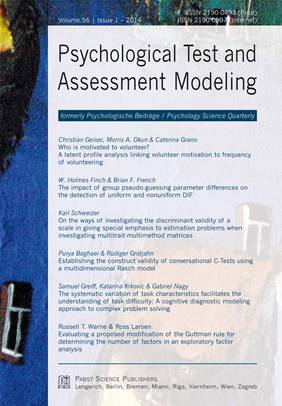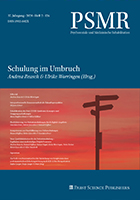Research on the motives of volunteers has been sparked by the notion that matching motives to appeals is a key to effective recruitment of new volunteers and further that the goodness of fit between motives and incentives offered to trained volunteers is critical to retaining them. In addition, research has demonstrated that motives for volunteering can impact the health-related benefits derived from volunteering. For example, whereas volunteers with more other-oriented motives for volunteering experience a reduction in mortality risk compared to non volunteers, volunteers with more self-oriented motives do not.
The authors distinguished six latent motivation classes:
- Low intrinsic + low extrinsic
- Medium intrinsic + low extrinsic
- High intrinsic + low extrinsic
- High intrinsic + high extrinsic
- High amotivation
- Response set class
Participants in the American sample of the study were 589 students, enrolled in sections of Introduction to Psychology at a large US-university. The European sample consisted of 933 psychology college students from a large university in Italy. Italian students reported volunteering less frequently overall and were more prevalent in the High amotivation class.
The two classes that mostly engaged in volunteering were the both High intrinsic groups. "The finding suggest that volunteer coordinators should treat members of these two classes differently in terms of providing them with low autonomous forms of extrinsic incentives: Individuals who are high in external regulation and introjected regulation may respond well to external incentives that provide them with status and which bolter their feelings of self-worth.
Thus, for example, among Hig intrinsic + High extrinsic motivated volunteers, public recognition of their efforts and positive feedback about task-performance may increase volunteer behavior. In contrast, extrinsic incentives may reduce the likelihood of volunteering for individuals in the High intrinsic + low extrinsic class because such incentives can create an over-justification effect ..."
Psychological Test and Assessment Modeling 1-2014






















